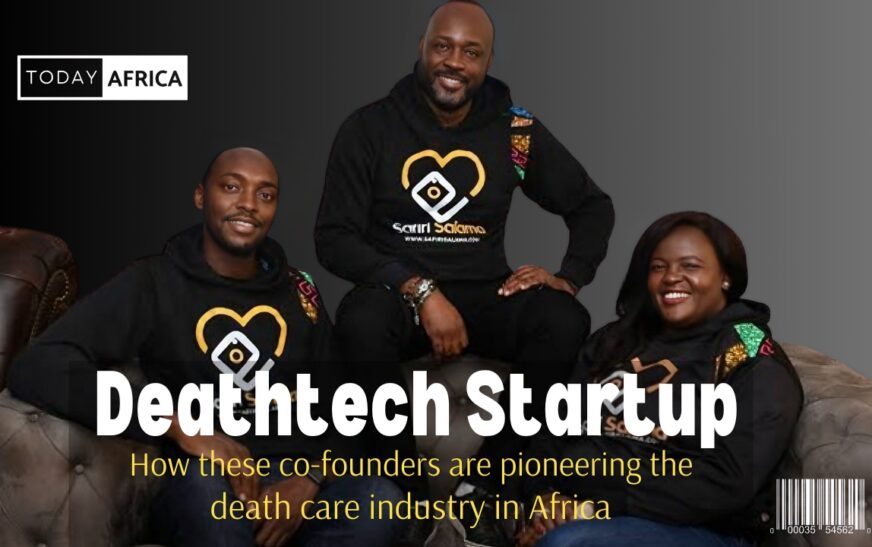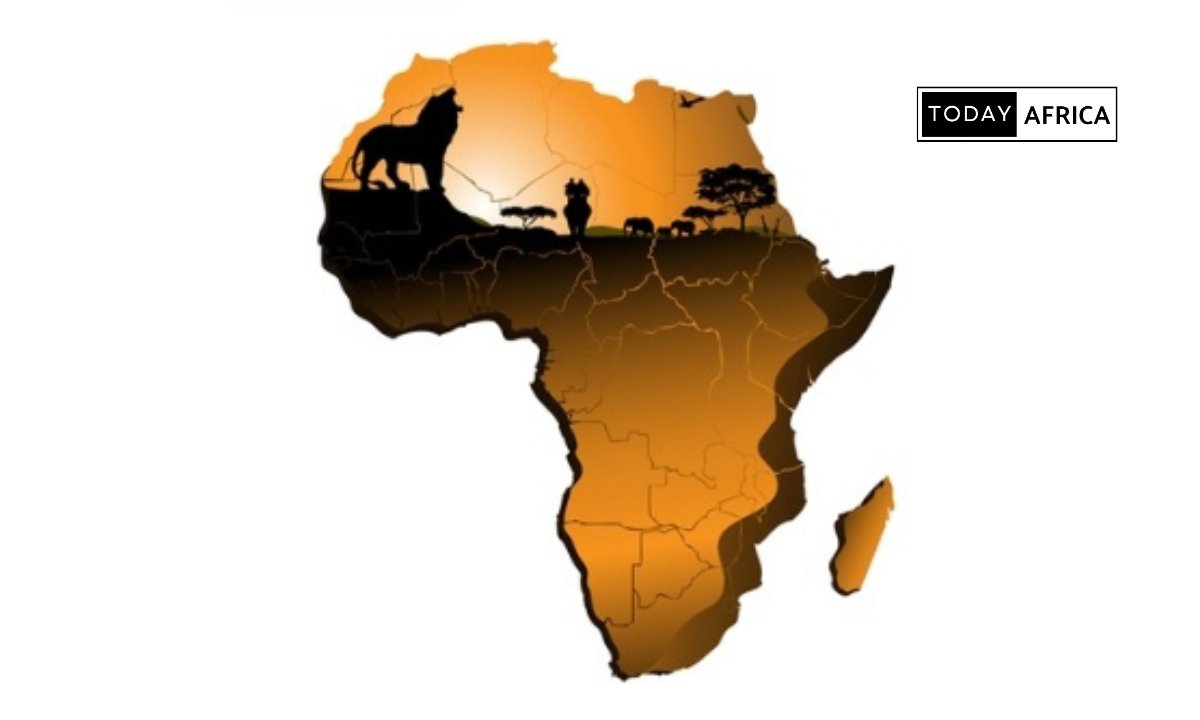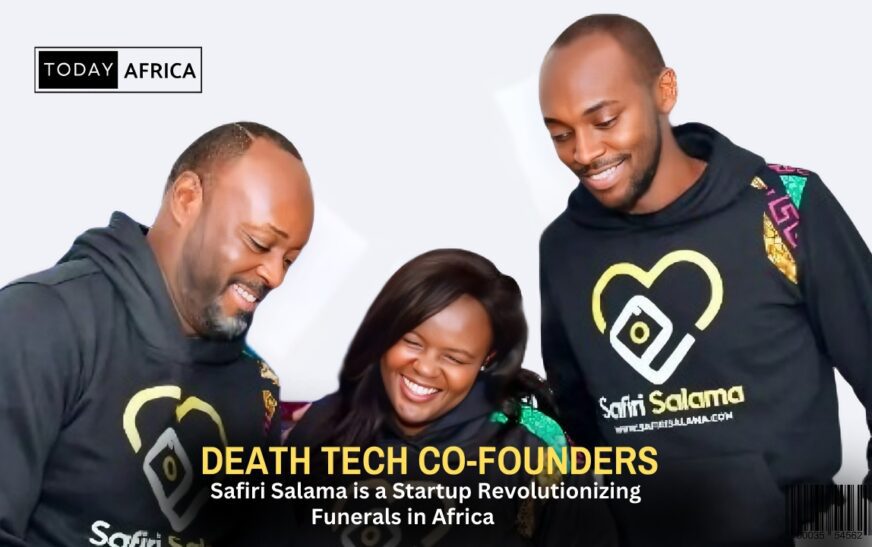This is the continuation of our interview with John Nyongesa, Founder of Safiri Salama, a Deathtech Startup in the Death Care Industry. Safiri Salama is a startup is pioneering the death care industry in Africa, which includes services like, will writing, planning, funerals, inheritance of digital assets, and human composting.
You understand that death is a sensitive topic in Africa and all over the world. But isn’t it a part of life? We think and talk so much about our future and plans for it, and death is also a part of this future. It’s okay to talk about death and make some arrangements for it during life. It’s even prudent and caring towards your beloved ones — to think about them coping with your death.
Whether experiencing grief after the unexpected death of a loved one, trying to plan a funeral with an ecological bent, or wanting to have a say in how we are remembered, Safiri Salama is innovating what happens after a loved one dies — and before you read, check out part one and part two of this interview.
What Principles or Values Do You Believe are Crucial for Creating a Collaborative and a Purpose-driven Environment at Safiri Salama?
As I said earlier, just the same way we pick our partners, or the same way I reached out to my co-founders. Emotional intelligence is an important aspect because we are dealing with a very sensitive subject and people walking through very sensitive times. And we’re also dealing with culture. I mean, there is culture surrounding the conversations around that. And so you are not going to do a commercial promotion. You’re going to do storytelling.

But I think the most important for us, because one of the first things is exactly how we train our team. You have to have the willingness to be a changemaker. That’s really critical. And that’s not negotiable. We don’t just want guys who treat this as a job. We want people who think we will change the way we do things and we look for that aspect in the people we interview. Also, we look at the sense of adventure. To be in Africa’s first deathtech is adventurous. And you have to have the drive to know what you’re providing is such an important service, but you’ll have to navigate a lot of glances and a lot of uneasiness to get there.
But if you are keen on making change happen, you’ll have to go through that experience. And then we actually are looking for people who have empathy. This is not just business. And some of the features we inbuilt into our system are actually more about what would a bereaved person want? What would somebody celebrating memorials want? What does someone who’s planning a funeral need? There’s a sense of empathy that must be there in the team for you to actually understand this is not just about the job.
What Are Your Future Plans and Aspirations for Safiri Salama?
Just create a market fit in Kenya. Build the team. Initially, fundraising was at the top of our list, but right now it is not. The next thing is to actually become a revenue generating startup. This is important because it forces you to actually worry about and care about what you do. Is it bringing value to someone and is someone willing to pay for it? That is really important. But apart from that, create a Kenyan market fit and then scale outside Kenya. Because we share a lot of similar cultures across Africa. And the thing is the way we actually treat death is almost similar in different communities across Africa, especially sub-Saharan Africa.

For us, it’s to expand this, then we would like to focus on building a strong brand. Because you have a market, even in Nigeria today, if you are to ask, I want to buy a coffin or I want a house or I want a condolence book. If you were in any other industry, the first thing somebody would ask is what brand are you buying?
Within the death industry, there is no brand. So we are trying to build a death care brand that people can embrace. And our future plan after doing a market fit is also to see which other aspects of the funeral industry can we scale into. And as I say, there are several. There’s insurance, there are funeral homes, there are cemeteries, there is data.
And we want to build a brand that can scale outside Kenya, but also scale beyond this initial phase that we are doing. That’s actually what our plan is.
What Advice Can You Give to Africans Who Are Looking to Start Their Business or Who Are Just Starting Their Business?
I think the two things that are important that I have learned myself, let me just share what I know. One, it amazes me how much people can tout or declare that a particular venture or a particular line of business.or a particular project is so important to them. And yet spend the least time finding out anything about that business.

You must understand the business. I have worked with several industrialists, and one of the things I observed was they knew the area they were in. They read about the area. They talked to other players in the industry because the one thing that you must come and offer in a market to be distinct is you must offer a better product. And you can’t offer a better product if you don’t know what that industry does or what it’s going through.
So the biggest thing would be whatever it is you want to do, you must be able to spend as much time to understand what that industry looks like. The other thing is that it’s not an original thought, but it works for everyone. It’s the same thing that the founder of Facebook, Mark Zuckerberg, says, ideas never come out fully.
When this started off as a memorial for my father,.I had no idea the years later would actually be looking at an African first and all inclusive platform that actually is thinking about a bigger venture ahead. So ideas never come out fully formed. But if you work on them, you will see the next bend. If you don’t work on them, you’ll never see the next bend.
People want to see the entire end-to-end picture. I think you must start. And in starting this, we understood the market, we understood empathy, we talked to funeral homes, I’ve talked to morticians, I’ve talked to embalmers, I have talked to coffin makers. We have met so many people, we now can see where the next bend is. If we had never started, the idea did not come out fully.
Quick 6 Questions with John Nyongesa, Founder of Safiri Salama, a Deathtech Startup in the Death Care Industry
1. What is the first African country you want to visit this year?
Nigeria. One, the field that I’m in right now. Their cultures are so robust and they are loud, even though they still suffer from the rest of us about this silence around the subject, but they are very robust. Two, proudly African, that’s what you can call Nigeria. So if you actually want to see what else you can see outside to see yourself outside Kenya, or to reflect what we actually think about ourselves. Nigeria is a very good example. And three, they’re just robust as a people and very competitive, too. And I actually believe that an African brand that walks into Nigeria and survives is a truly African brand.
2. What is the most underrated Kenyan food?
I would say githeri. It’s actually a mixture of maize, beans, potatoes, and possibly a few veggies in there. It’s very nutritious. It actually has starch, it has carbs, it has proteins, and it has the entire mix.
3. How do you look after yourself in your free time?
I read and I surf a lot. I’ve almost said that the internet was invented for me or I exist with it. The thing is I read a lot about different experiences in different countries. It makes me an international citizen, but it also allows me to actually see other aspects. So that’s my free time. I would read a specific subject as work, but I like delving into the unknown when I’m free, in terms of just enriching my mind. And the other thing is at 53, as I said, I’m an old techie. So I do exercise.
4. What has been your most humbling moment in your journey as an entrepreneur?
I think, failures. I started an IT platform in 2008 to actually provide women’s outfits. It failed because one woman said, you’re selling things to women. How much do you understand about women? It was a very simple question, but it was a very loaded question. And what she actually asked me was, did you know that while you think you’re selling outfits, lingerie and stuff, I was trying to create a Victoria’s Secret kind of thing. And she was like, okay, you know what we feel when we do specific things.
Unless you understand that you’ll never sell it to us. And I didn’t listen very well. The business didn’t do well. There were simple things. At that point, people didn’t trust online. At that point, women hardly buy their undergarments unless they can touch them and feel the fleece. There’s a lot. It says something about them. I mean, half the time they’re like, women dress for men. No, they don’t. And it’s not just any new idea that is a good idea. It brought in a couple of new things.

And it costs a lot of money, but it was a very good learning curve when she asked, what do you know about women? And it’s been quite a question every time I’m trying something. What do you know about the people you’re trying to give this service to? It has worked for me.. But it was humbling because as a man, their first reaction is, what do you mean? Every man knows about women.
5. Do you watch football? If you do, which football club do you support?
Arsenal
6. What’s one thing you would like people to know about you?
I’m very passionate. I can’t do anything that I’m not passionate about. Sometimes I go overboard with it, but I work from both the head and the heart. I must be passionate about something for it to make sense to me. Whether it’s friendship, it is work, it is a project, it’s a relationship. It doesn’t matter what it is. I must have passion for it.
To find out more about Safiri Salama. Visit the company’s website and social media platforms:

















1 Comment
Thank you for getting value from our content.
Comments are closed.